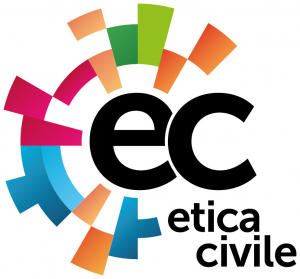Reading the Signs of Time – Stories of walking generations
FINAL DOCUMENT – INTERNATIONAL CAMP 2018
Generations are walking in a constantly changing world. Technological progress has brought around lots of new opportunities and challenges; however, we should be specially educated to be able to make the right choice and have instruments to navigate information glut in the best way.
We, more than a hundred young people coming from all over the world, feel the urge to share a message of hope and commitment in building a future of friendship and peace among mankind. We come from Angola, Belarus, Camerun, Democratic Republic of v Congo, Italy, Israel, Lebanon, Mali, Palestinian Territories, Perù, Russia. During these days we looking into the future, as scary as it might seem, which is what we are asked to think about, build and share. Thinking and realizing the future entails the acknowledgment of our roots, the awareness of the current challenges and a prophetic sight into the world, that is able to grasp the signs of time and announce a new spring.
In the last decades, people from all over the world have experienced an unprecedented wave of disruptive social as well as technological changes that have widened the gap between generations, making personal and economic self-realization more complex for youngsters. Once of the consequences of such a change is that generations nowadays are more and more challenged in being able to communicate with each other in a time of growing incommunicability. We live in a world where the array of available possibilities is getting larger and larger, so that the life experiences of youngsters tend to be difficult to understand for the elder people and vice versa. Even though, on the one hand, this allows individuals to define themselves in a more tailored way; on the other hand, the sense of isolation and loneliness grows. Indeed, the immediacy of modern life styles has widened the generation gap and, at the same time, cast shades on the role of the future ones.
Generations, and the various identity they are composed of, are meant to link the past to the future, nonetheless, if the above link between is questioned by immediacy, uncertainty and lack of trust, the ways for defining our identities are questioned as well. In this narrative, that we firmly refuse, identity becomes a dividing concept, meant to exclude whoever is different, whoever does not belong to the same reality. In such a context, the definition of individual and collective identities is not anymore a way to build bridges with the past, made of different and peculiar roots, and the future, where different roots are shared to achieve common goals. Identity becomes a monolithic idea that lives only in the past and is scared by the future. We, the young generation, shall not be scared or tempted by this narrative of hatred; on the contrary, we urge people to respond with a counter narrative, made of responsibility and vision: responsibility for being able to understand and take care of the complex problem of modern time in our families and communities, as well as with our friends and neighbours and vision for thinking of suitable solutions for the future.
In order to do so, we are convinced that personal engagement and activism represent a necessary and crucial cornerstone. Indeed, all of our choices are, in the end, political activism, ranging from what we buy for grocery, through the type of professional path we decide to follow, to the way we decide to educate future generations. Nonetheless, we are aware that this cannot be enough and to address the current challenges, long-term oriented collective actions are crucial. We know that the time for complaints and self-loathing has to come to an end. Therefore, we are asked to be responsible for the future, setting the necessary goal to reach and acting to achieve it. Accordingly, conflict within and between generations cannot be approached as a factor of division any longer. On the contrary, it represents opportunities for new solutions that are not based on unilateral decisions but on shared ones. This will be possible only overturning the logic of mere contraposition of power in decision-making processes, so that decisions be grounded on listening and understanding.
This represents the stepping stone to forge shared solutions that take into consideration the complex nexus of generations and relationships within them. Such a process is not plain sailing neither straightforward, as it infers the effort of different components of our society which are asked to find shared solution through dialogue. This, sometimes, necessarily means being ready to give something up, to link the past with the future renouncing to our short-term welfare for achieving something bigger in the long run. Even though this line of reasoning might seem mainly theoretical, we are convinced that many of the current challenges can only be addressed through intergenerational dialogue and responsibility. The easiest example to make is environmental policies, which entail the idea of future that we want to pass on to the coming generations. In the same vein, immigration waves, educational policies, social security reforms, innovative processes, etc. cannot be blindly handled only by looking at electoral consensus and short term results. On the contrary, they ought to be addressed by looking at the future and considering that the choices we make today will shape our communities for the decades to come. Such a long term orientation can only be pursued as long as trust and hope permeate our society.
Hope, specifically, shall be the cornerstone on which to build the future. Indeed, hope presupposes that we are part of something bigger, that the world did not start and will not come to an end with us. It has been said that we live in an era where faith is in crisis and spiritual and religious dimensions will most probably be more and more neglected. We, young people, during these days in the Camp experienced a spiritual and religious life style that enriched us both individually and as a community, especially thanks to the dialogue between different traditions and religions.
The message of hope that Abrahamic religions and traditions spread is getting more and more crucial in the modern era. Therefore, we, young people belonging to different religions and traditions, commit ourselves to testify the message of peace and hope inherent to our faith, fighting the narrative according to which religions are a means of violence and separation. On the contrary, religions are and always shall be a means of meeting and dialogue, of facing together the challenges ahead. It conjures up the image of Isaac and Ismael who despite their separation, met each other in Mamre remembering their father Abraham (cf. Gen. 25, 9)
In fact, Abrahamic religions represent the perfect paradigm of intergenerational dialogue and relationship: rooted in the past and always looking at the future. So that, at the beginning, was said: “The man leaves his father and mother and is united to his wife” (Gen, 2,18). The openness to the future, the awareness of being part of something bigger than us, the faith in God and future generations are crucial for all of us, young believers. If we lose our hopeful sight into the future, we are exposed to the risk of extremisms that use religion to shield themselves from the future: “therefore, every teacher of the law who has become a disciple in the kingdom of heaven is like the owner of a house who brings out of his storeroom new treasures as well as old” (Mt. 13, 52). Hope also means being open to the mystery, to something we do not and cannot understand. As the Quran teaches us, once Ismael meets Abraham after a long period of time, Ismael is respectful and devoted to his father and is open to Abraham’s request, even though he cannot fully understand it at first: “And when he reached with him [the age of] exertion, he said, ‘O my son, indeed I have seen in a dream that I [must] sacrifice you, so see what you think.’ He said, ‘O my father, do as you are commanded. You will find me, if Allah wills, of the steadfast.’ (Quran, 37 102). Religions, with their message of hope, are made of future and roots, tradition and prophecy, differences and reconciliation in one father Abraham. We, young generations, are asked to carefully spread the seeds of hope, to patiently cultivate them and let future generations harvest their fruits.
We, young people, have been part of an experience where bridges are preferred to walls, where memory meets with a vision of a peaceful future and where hope is the mirror image of our new friends and neighbours. We feel lucky and grateful for the gift we have made one another and we commit ourselves to safeguard, share and foster the “La Vela Spirit” in our families, with our friends and communities, in our countries of origin, so to make our peaceful and hopeful future happen.




